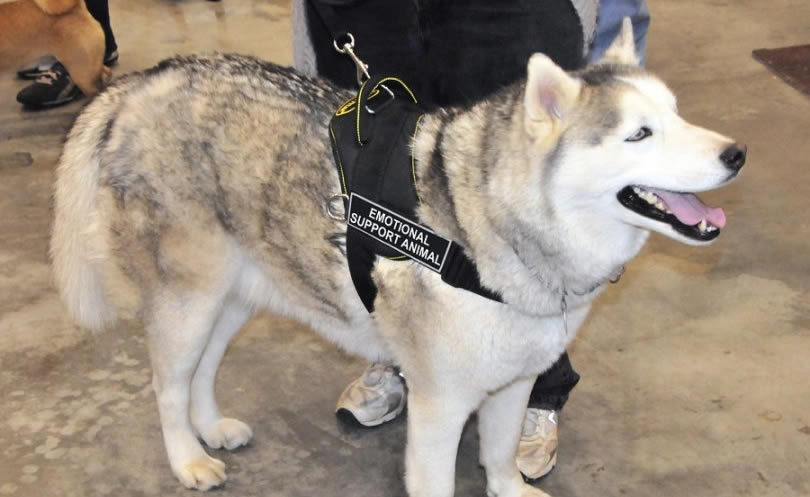Many people with disabilities rely on the help of service dogs. The Federal law grants certain protections and rights to people with disabilities that rely on guide and other service dogs.
Access to Public Places
There are a number of laws that govern how service dogs should be used in different contexts. One of the laws is the Americans with Disabilities Act (ADA).
The ADA act guarantees people with disabilities that rely on service dogs equal access to public places such as government buildings, shops, theaters, hotels, hospitals and restaurants. Owners of these public places are required by ESA law to modify their practices to accommodate service dogs, if necessary.
However, the rights are only valid for dogs that fall under ADA’s definition of “service animals”. The ADA defines a service animal as a dog that has been trained to perform specific tasks to help a person with a disability. The dog should have been trained to perform tasks that are directly related to the person’s disability.
Under the ADA regulations, a “helper” cat or monkey does not fit the description of a service animal. This is because the definition is limited to dogs. In some cases, the ADA requires public places to accommodate people with disabilities who rely on miniature horses to perform various tasks. If you have an emotional support animal, some establishments may require you to provide a letter for it. You can apply for the letter online at Certapet.
The most well-known example of service dogs are guide dogs that help blind people safely navigate around obstacles. Service dogs can also be trained to help wheelchair-users, people with mental, psychiatric or intellectual disabilities, those with mobility impairments and the deaf.
What Are Psychiatric Service Dogs
“Psychiatric service dogs” are specially trained dogs that can help people with psychiatric disabilities such as post-traumatic stress disorder (PTSD), anxiety disorders, and severe depression. Some of the tasks the service dogs can perform include:
- Interrupting or preventing impulsive or destructive behavior, such as self-mutilation
- Preventing people in dissociative episodes from wandering into danger (for example, traffic)
- Providing room searches or safety checks for individuals with PTSD
Emotional Support Animals
Many people, regardless of whether they are disabled or not, get comfort and emotional support from dogs and other animals. These animals may not be specifically trained to perform tasks directly related to psychiatric disabilities.
According to the ADA, “emotional support animals” are different from psychiatric service dogs, and are also treated differently. Owners of emotional support animals are not granted the same right of access to public places that psychiatric service dog owners are. According to the ADA, a person with a psychiatric service dog has a right to go to the movie theater with the dog. However, a person with an emotional support dog may not be allowed to the theater with the dog.
Laws on Being Accompanied by an Emotional Support Animal
The ADA governs how emotional support animals should be used in public places. For use of the dogs in commercial aircraft or in housing, there are Air Carrier Access Act (ACAA) and Fair Housing Act (FHAct).
Airlines
Under the ACAA, qualified passengers with disability must be allowed to board a commercial airplane with emotional support dogs during flight. Airlines should not require passengers traveling with a service animal to provide written documentation proving the animal is a service animal. However, passenger traveling with an emotional support animal can be required to provide documentation.
Housing
Under the FHAct, individuals with disability are entitled to keep emotional support animals in housing facilities where otherwise, pets are not allowed. An emotional support animal must be allowed as a reasonable accommodation when the disabled individual needs the animal to enjoy the housing opportunity equally as other people. The animal should provide assistance related to the person’s disability.
In both the airline and housing context, a person with disability is likely to require a letter from a licensed mental health professional documenting the need for having the emotional support animal.
